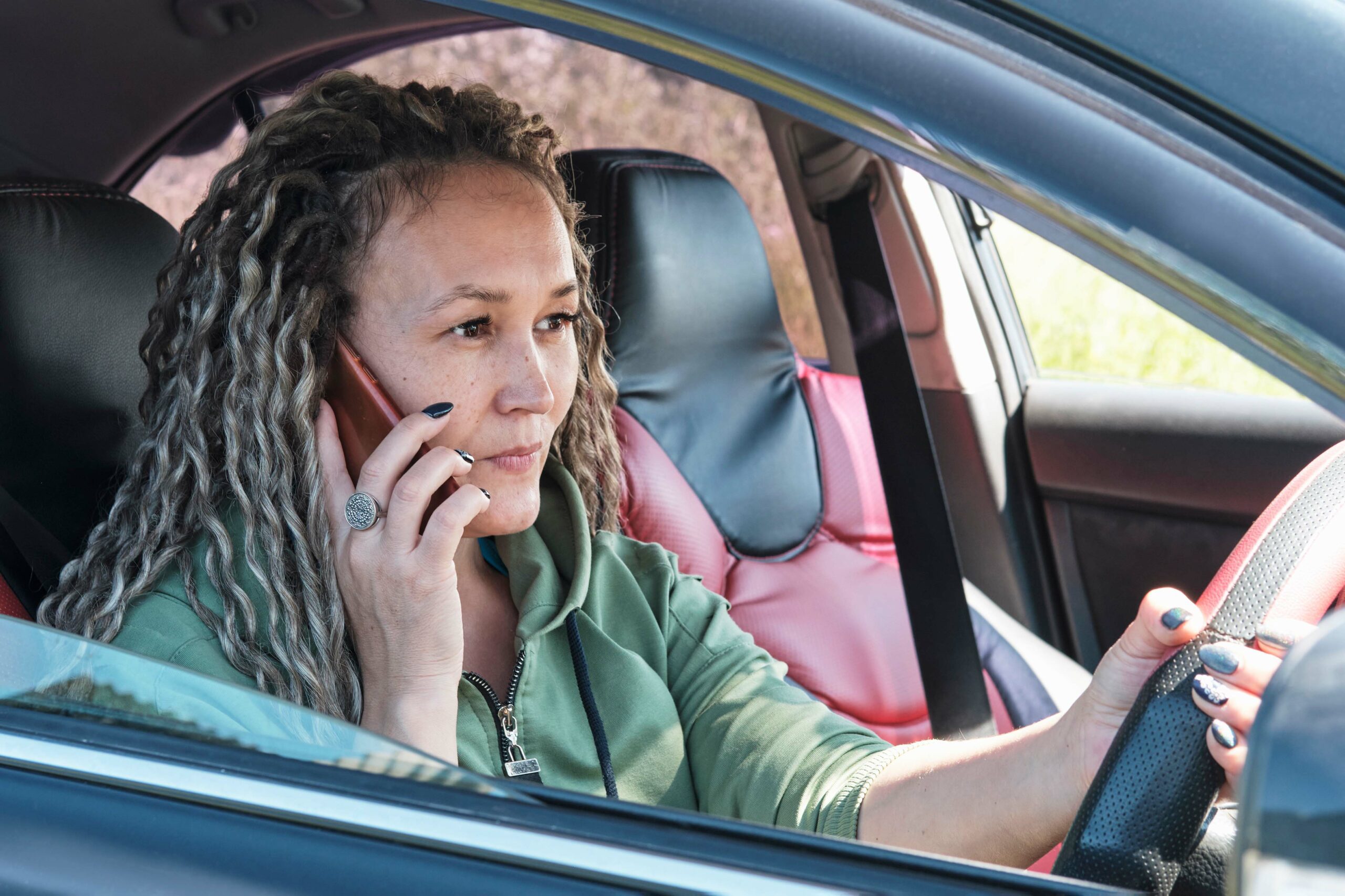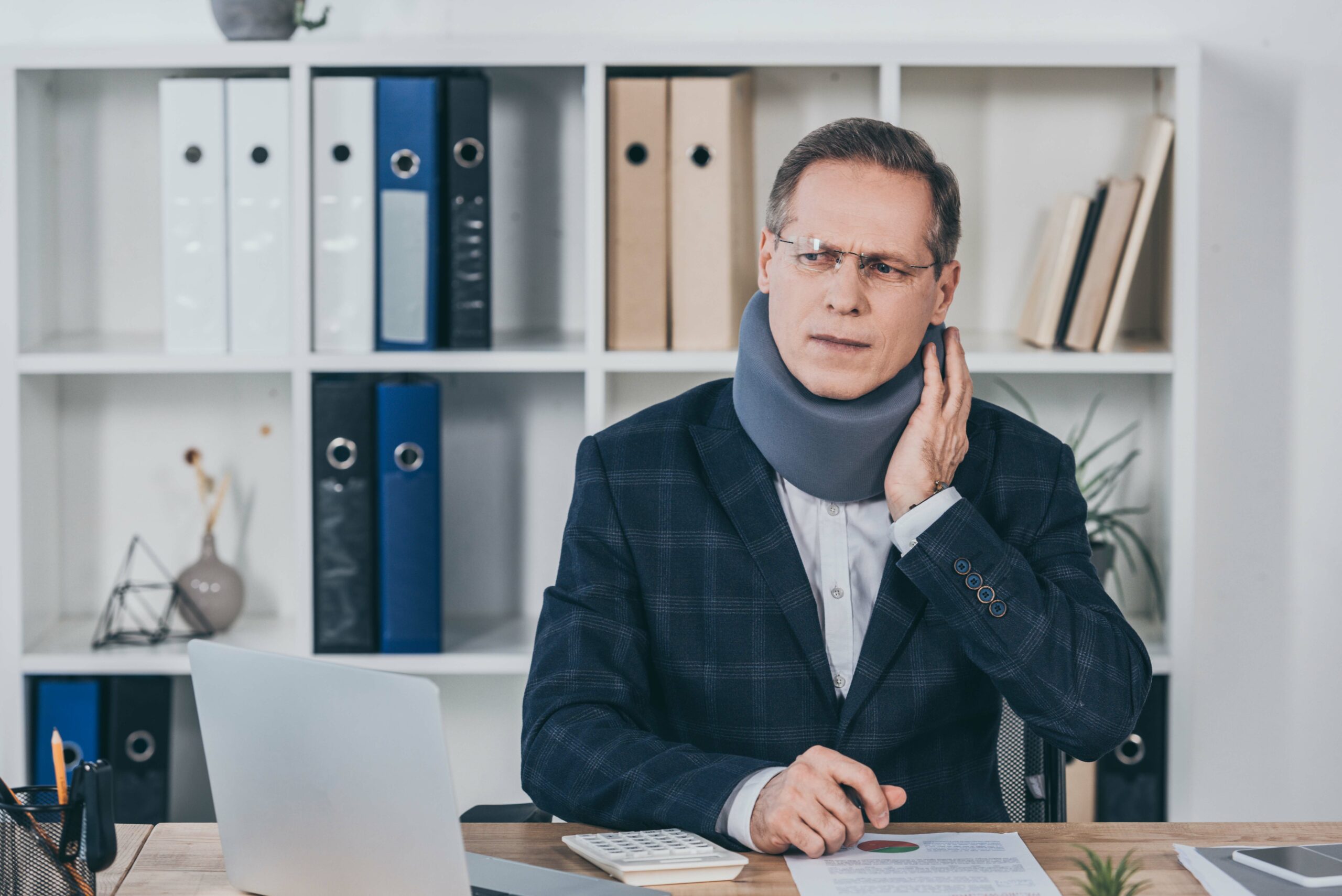Distracted driving is a major cause of catastrophic injuries on roadways. According to the National Highway Traffic Safety Administration, thousands of lives are lost annually due to driver distractions. Distracted driving is a pervasive problem that affects drivers of all ages, and includes any activity that diverts attention from driving, increasing the likelihood of accidents. These distractions can have severe consequences, whether texting, eating, or adjusting the radio.
What Are Visual Distractions?
Visual distractions involve any activity that takes a driver’s eyes off the road. Examples include texting, looking at GPS devices, or glancing at a roadside billboard. These distractions are hazardous because they reduce a driver’s ability to notice and react to changes in traffic conditions, increasing the risk of accidents.
Other visual distractions can include applying makeup, looking at a map, or searching for items within the car. Each activity requires the driver to look away from the road, even if only for a few seconds, which is enough time for an accident.
Proving Negligence in Distracted Driving Cases
Proving liability in distracted driving cases requires substantial evidence. This includes phone records, eyewitness accounts, and traffic camera footage. At Huffman & Huffman, we specialize in gathering and presenting this evidence to build a strong case.
In addition to these types of evidence, attorneys may use data from vehicle telematics systems to show the driver’s actions leading up to the accident. Expert witnesses, like accident reconstruction specialists, can also provide valuable insights into how the distraction contributed to the crash.
Impact on Personal Injury Case Outcomes
Distracted driving can significantly affect the outcome of personal injury cases. Establishing that the driver was distracted can be crucial for determining fault and securing compensation for catastrophic injuries.
The presence of a distraction can shift the liability entirely onto the distracted driver, which is vital for the victim’s claim especially with Virginia’s rule. Insurance companies may try to minimize payouts, but concrete evidence of distracted driving can strengthen the victim’s case for full compensation. This evidence is essential for covering medical bills, lost wages, and other damages.
Types of Compensation Available
Victims of distracted driving accidents can claim several types of damages, including medical expenses resulting from the car accident, pain and suffering, and inconvenience and lost wages. Understanding these potential compensations is essential for victims seeking justice.
Additional compensation may include future medical costs, rehabilitation expenses, and damages for loss of quality of life. Depending on the severity and circumstances of the case, emotional distress, and punitive damages may also be considered.
Legal Advice and Next Steps
Consult an experienced personal injury lawyer if you’ve been involved in a distracted driving car accident. Huffman & Huffman Brothers-in-Law offers comprehensive legal support to help you work through your case and secure the compensation you deserve.
Our car accident attorneys will help you with each step of the process, from filing your claim to negotiating settlements or going to trial. Acting quickly is important, since there are time limits for filing personal injury claims.
Preventative Measures
To prevent distracted driving, always keep your eyes on the road, use hands-free devices, and avoid multitasking while driving. Awareness and caution can save lives.
Drivers should also familiarize themselves with local laws regarding mobile device usage and implement safety measures such as setting up GPS and playlists before driving. Awareness campaigns and education can also play a crucial role in reducing distracted driving incidents.
Additionally, reducing in-car distractions and staying focused on driving tasks are vital steps to ensure safety for everyone on the road. Practicing defensive driving techniques and avoiding stressful or emotional conversations while driving can also help maintain focus and prevent accidents.
Contact Huffman & Huffman Brothers-in-Law today to schedule a FREE consultation with a personal injury lawyer!
 Text Us
Text Us  Call Us
Call Us 







